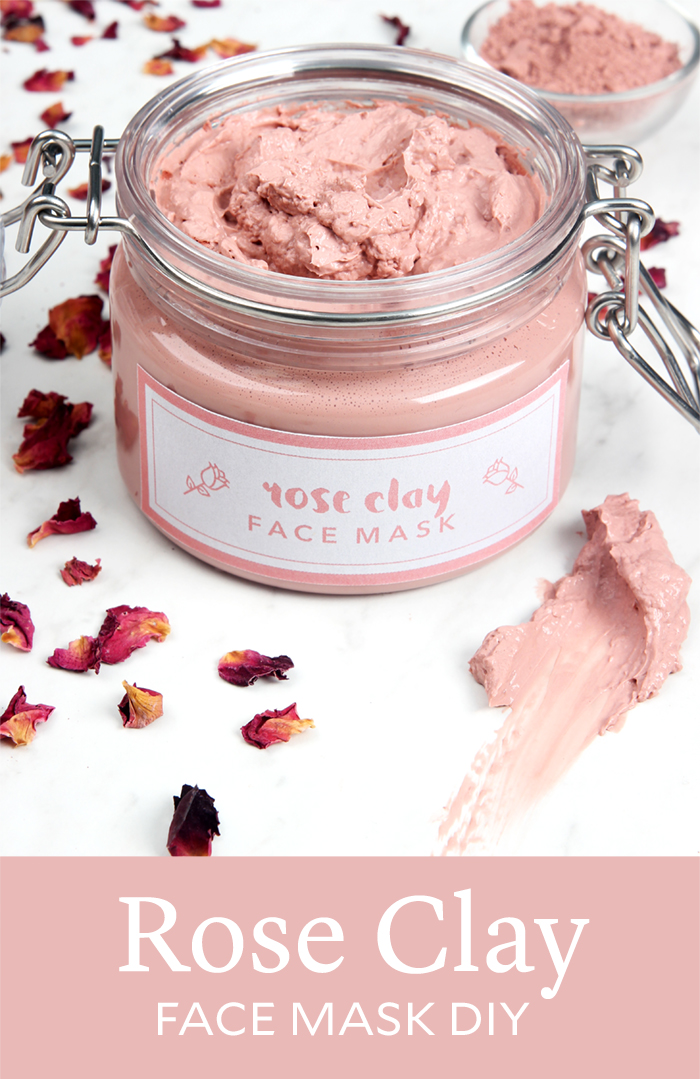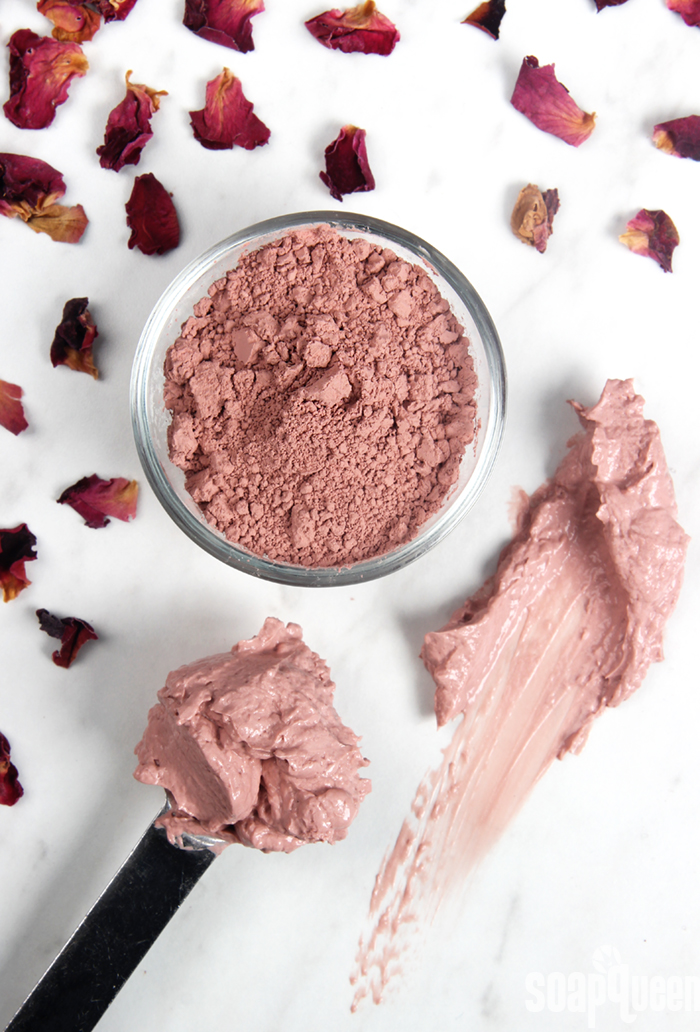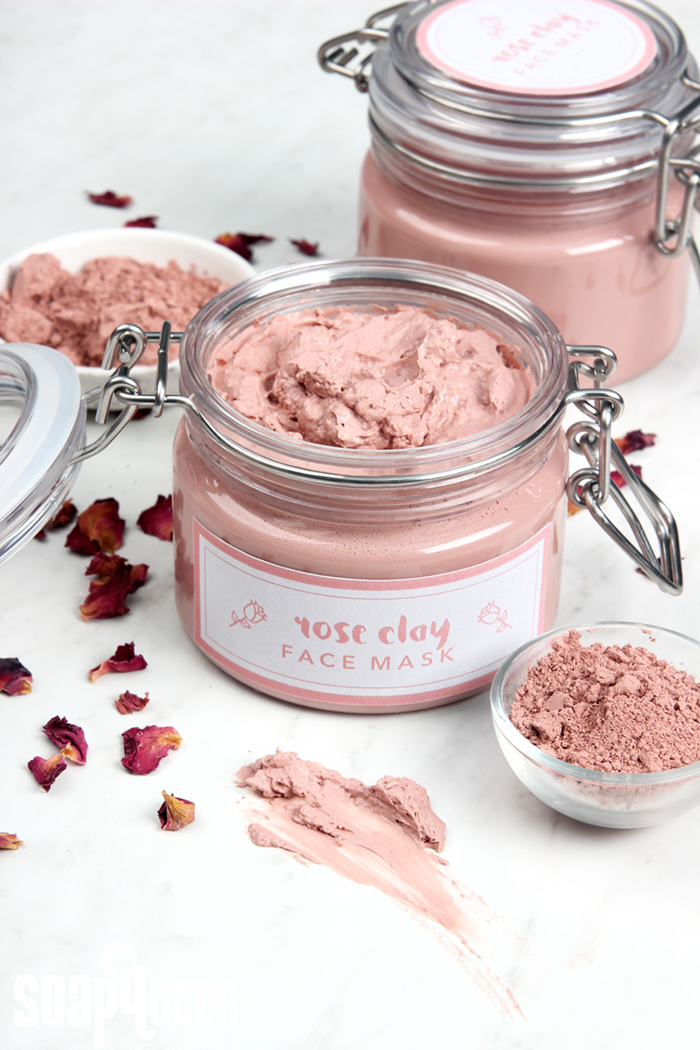
Rose clay is a naturally beautiful skincare ingredient. It adds a soft, rosy hue to this Rose Clay Face Mask. Rose clay has gentle oil-absorbing properties, making this mask suitable for both dry and oil skin types. Scented with rose absolute, this face mask is luxurious and pampering.

This face mask recipe was specifically designed with dry, mature skin in mind. Rosehip seed oil is rich in vitamin A and C, and intensely moisturizes without leaving a greasy feeling on the skin. Chamomile extract soothes dry skin, and is thought to be an anti-inflammatory. A downloadable label template gives a finished and polished look.

Rose absolute is extracted from rose petals, and gives the mask a soft, luxurious rose scent. It is a pricey essential oil, but you don’t need much at all. Just 1 mL of the oil is enough to elevate this mask to a truly pampering experience. If you don’t have dry or mature skin, there are three different variations of this mask recipe. This post will help you find which clay mask is right for your skin type.
- Tumeric Clay Face Mask – normal, combination skin.
- Lavender Clay Face Mask – dry, sensitive skin.
- Sea Clay Face Mask – oil skin.
A few notes about recipe substitutions:
- Polawax Emulsifying Wax is a highly reliable and strong emulsifier. It could be substituted for the generic version, Emulsifying Wax, if you prefer, although this recipe was not tested with Emulsifying Wax. Due to the clay in the recipe, we splurged and used Polawax Emulsifying Wax to avoid any chance of separation.
- This recipe calls for avocado and rosehip seed oil. Other oils can be used instead if you prefer; we recommend staying with liquid oils that absorb easily into the skin. Changing the total amount of oil in the recipe will change the overall texture of the mask.
- Because this recipe is essentially a lotion and contains a large amount of water, a preservative is necessary to prevent mold and bacterial growth. We chose Optiphen, but other water soluble preservatives will work. Learn more about preservatives here.
- Increase the total amount of clay if you want it to be better suited for normal to oily skin types. Decreasing the amount of clay may create a thinner product with more moisturizing properties.
- If you prefer to use different clays, feel free to swap them. Clays have different absorbing properties, which will affect how it feels on the skin. Learn which clay is right for your skin.
- If you have very sensitive skin, fragrance and essential oils can be irritating. Omit from the recipe if you prefer. Or, you can sub out the essential oil for a different oil.